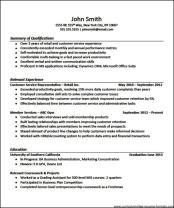How to become a microbiologist?
Becoming a microbiologist involves a specific educational path and gaining relevant experience in the field. Here's a typical pathway:
Education:
- Bachelor's Degree: Start with a bachelor's degree in microbiology, biology, biochemistry, or a related field. Ensure the program includes coursework in microbiology, molecular biology, genetics, biochemistry, and other relevant sciences.
- Advanced Degree (Optional): While a bachelor's degree can qualify you for some entry-level positions, pursuing a master's or Ph.D. in microbiology or a specialized area within microbiology can enhance job prospects, particularly in research, academia, or leadership roles.
Gain Laboratory Experience:
- Seek internships, research assistant positions, or lab technician roles during your undergraduate or graduate studies. Laboratory experience is crucial for developing practical skills in conducting experiments, analyzing data, and working with various microorganisms.
Develop Skills and Knowledge:
- Hone skills in microscopy, culturing techniques, molecular biology methods (like PCR), and bioinformatics.
- Stay updated with advancements in microbiology by attending conferences, workshops, and engaging in ongoing learning.
Obtain Certifications (Optional):
- While not always required, certifications such as those from the American Society for Microbiology (ASM) can demonstrate expertise in specific areas of microbiology and enhance credibility in the field.
Networking and Professional Engagement:
- Join professional organizations like ASM, Society for General Microbiology, or similar groups. Networking with professionals in the field can open up opportunities for collaboration, mentorship, and career advancement.
Career Paths:
- Microbiologists can work in various settings such as research institutions, pharmaceutical companies, healthcare, food and beverage industries, government agencies, or academic institutions.
- Roles may include research scientist, clinical microbiologist, quality control microbiologist, environmental microbiologist, or teaching positions in academia.
Continued Learning and Career Advancement:
- Microbiology is an evolving field; staying current with research and technologies is essential for career growth. Consider pursuing additional certifications, specialized training, or higher education as needed.
Remember, the specific career path can vary based on individual preferences, areas of interest within microbiology, and the level of education or specialization pursued. Networking, gaining practical experience, and continuous learning are key elements for success in this field.
What are the steps and educational requirements to pursue a career as a microbiologist?
Launching your journey as a Microbiologist: Steps and Educational Requirements
Microbiology, the study of microscopic organisms, offers a fascinating and impactful career path. Here's a roadmap to guide your pursuit:
Educational Steps:
- High School: Focus on core science subjects like biology, chemistry, and physics. Math skills are also important for data analysis.
- Undergraduate Degree: A Bachelor of Science (B.Sc.) in Microbiology or a closely related field like Biology, Biochemistry, or Biotechnology is essential. Core coursework will cover microbiology principles, genetics, immunology, and laboratory techniques. Consider research opportunities to gain practical experience.
- Master's Degree (Optional): A Master of Science (M.Sc.) degree can deepen your specialization in specific areas like medical microbiology, environmental microbiology, or food microbiology. It can also enhance your research skills and open doors to higher-level positions.
- Ph.D. (Optional): For research-oriented careers or academia, a Doctor of Philosophy (Ph.D.) in Microbiology is necessary. It involves independent research, leading to a dissertation and significant expertise in a chosen subfield.
Additional Requirements:
- Internships and Research Experience: Gaining practical experience in research labs, clinics, or environmental agencies is crucial. This demonstrates your skills, builds your network, and clarifies your career path.
- Strong Laboratory Skills: Master essential lab techniques like microscopy, culturing, and biochemical assays. Familiarity with advanced equipment like PCR and DNA sequencing is valuable.
- Communication and Analytical Skills: Effective communication, both written and verbal, is essential for research reports, grant proposals, and interacting with colleagues and clients. Strong analytical skills are needed for data interpretation and problem-solving.
Career Paths:
- Research Microbiologist: Conduct research in academia, government labs, or private companies, focusing on areas like vaccines, antibiotics, or microbial ecology.
- Clinical Microbiologist: Diagnose and analyze infectious diseases in hospital labs, contributing to patient care and public health.
- Industrial Microbiologist: Work in food and beverage, pharmaceutical, or environmental industries, applying microbial knowledge to product development, quality control, or bioremediation.
- Microbiology Professor: Educate future generations of microbiologists in colleges and universities.
Continued Learning:
The field of microbiology is constantly evolving. Staying updated through scientific journals, conferences, and professional development opportunities is crucial for career advancement and knowledge expansion.
Remember:
- Passion for the microscopic world and a fascination with solving biological mysteries are essential for success in this field.
- The educational pathway can be tailored to your specific interests and career goals. Don't hesitate to explore different areas within microbiology and seek guidance from career advisors or professionals in the field.













